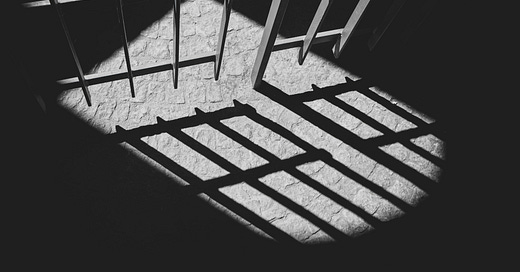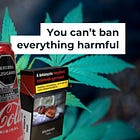Imprisoning someone for self-harm is morally wrong
What is the purpose of law? Is it to protect adults from themselves?
“The Prosecution Service sought custodial sentences for fashion designer Zoltán Herczeg and his associate, despite drug trafficking charges being confirmed only against his associate. At the same time, Herczeg himself faced charges solely for drug possession, Mandiner learned from the Prosecution Service of Budapest.” (Telex, April 2024)
Is the law meant to protect adults from themselves? To replace childhood socialisation? I don’t think so. The legal framework exists to ensure peaceful coexistence, intervening only when someone initiates violence against another’s life, property or liberty. While there are indeed specific cases where victimless acts should be punished — e.g. incest — it remains fundamental to human freedom that individuals should be free to determine what they consume and what substances they take into their bodies.
Individual liberty, which forms the bedrock of Western civilisation, is inconceivable without private property.
And we can hardly speak of private property if we cannot exercise unrestricted control over our most fundamental possession: our own body.
Follow only my English pieces for free. I’m no longer publishing English articles on my Hungarian Substack; please subscribe to my separate English-language publication below.
Whilst harming yourself is wrong, this is not a matter for the law to rectify, but rather for culture, society, and your family and friends. If someone harms others, whether under the influence of drugs, drunk, or entirely sober, that rightly and justly warrants punishment and prosecution, as it constitutes aggression against the lives, liberty and property of others.
Just as the occurrence of drunk driving does not justify banning alcohol, the fact that people can commit aggressive criminal acts, rightly subject to separate criminal charges, whilst under the influence of various substances, does not validate imprisoning individuals merely for storing and possibly consuming substances in their own homes. This is morally wrong, and in a country where the Prime Minister declares pálinka a basic foodstuff in Parliament, it is utterly hypocritical.
Moreover, one of the illegal drugs for which Herczeg was arrested for possession (not dealing!) was marijuana, which numerous countries have now legalised under certain conditions. Those who are addicted deserve medical help, whilst those who are violent should be apprehended, regardless of whether they have consumed anything beforehand.
And those who, like countless others in this country as well, occasionally smoke cannabis, for instance, but harm no one, should be left alone by the police.
Whilst I would not recommend such activities to anyone, this principle extends equally to those who use harder substances. This remains their personal choice, as long as they do not cause harm to others.
Translated using BookTranslate.ai. I am Kristóf Ábel Tarnay, a Budapest-based Hungarian journalist born in Szeged, a city you may not have heard of, but which is worth visiting sometime. You can subscribe only to my English pieces here. My Substack publications are free, but if you enjoy what you’re reading and would like to support classical liberal thinking in Central Europe, you can consider supporting my work here.







